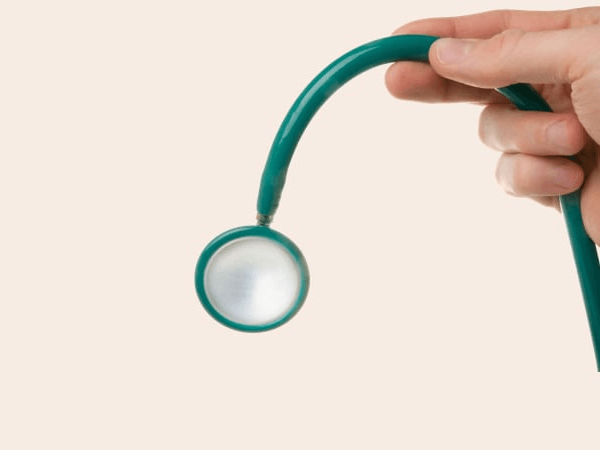For people that are experiencing symptoms of erectile dysfunction, one of the most important elements to creating a treatment plan involves determining the underlying causes of the condition. Many people may wonder, is ED an early sign of heart disease?
With that in mind, the Felix team has put together this page of useful information regarding the link between cardiovascular health and erections.
If you’re interested in speaking to a healthcare practitioner about whether ED medications could be the right treatment option for you, complete a short online assessment to get started.

Get treatment for ED 100% online
Connect with a Canadian nurse practitioner from home. Fast approvals, discreet delivery, ongoing support.
Is There a Link Between ED and Cardiovascular Disease (CVD)?
Yes, there is absolutely a link between ED and heart issues.
In fact, people that have cardiovascular disease (CVD) are more likely to experience erectile dysfunction (ED); especially later in life.
By the same token, ED can be an early sign of heart disease, as there may be micro-changes in the blood vessels of your body causing your ED symptoms.
SIDE NOTE: It’s important to remember that ED can be caused by a number of different factors, and in some cases, may be the result of a combination of psychological, physiological, and environmental factors.
So, if you’re experiencing any level of erectile dysfunction, this doesn’t necessarily mean you’re having cardiovascular issues. It may just be a signal to get tested for these types of conditions.
ED and CVD: Examining the Link
There are a number of different physiological elements that can affect your ability to get or maintain an erection. These could include:
- High cholesterol
- High blood pressure
- High blood sugar levels
All of these factors can impact your body’s ability to get blood efficiently to your penis. They can also cause microvascular damage and nerve damage in your body over time, which can cause difficulty getting or maintaining an erection.
Both ED and CVD also share similar risk factors for developing these conditions, so if you’re at a high risk of developing CVD, you may also be at risk for erectile dysfunction.
If you’d like to talk to a healthcare practitioner at Felix about whether ED medications could be the right treatment option for you, just complete an online assessment to get started.
Are Those with ED More Likely to Develop Cardiovascular Disease (CVD)?
Since both ED and heart disease share similar risk factors, and both can be caused by certain underlying conditions, you may be at risk of developing heart issues if you have ED.
This is especially relevant if the cause of your erectile dysfunction is determined to be high blood pressure, cholesterol, or blood sugar levels.
However, it is important to reiterate that developing ED does not necessarily mean you will develop cardiovascular disease. ED and heart failure may have certain connections, but they are two distinct conditions, separate from one another.
If you’re starting to experience the symptoms of ED, or you’ve been diagnosed with erectile dysfunction, and you’re concerned about developing CVD, you should consider requesting blood work from your family physician to check on your cardiovascular health.
Common Risk Factors for Both ED and CVD
Lifestyle elements can play a role in increasing your risks of developing both ED and CVD. These could include things like:
- Smoking
- Diets high in fatty foods
- Alcohol use
- Recreational drug use
- Obesity
- Age
- Untreated high blood pressure
- Untreated high cholesterol
- Diabetes (types 1 and 2)
- Obstructive sleep apnea
If you’re interested in talking to a healthcare practitioner from Felix about potentially starting ED medications, but you’re concerned about these lifestyle elements impacting your treatment, Felix is here to help.
Be sure to discuss possible lifestyle changes that could reduce the severity of your symptoms and your risks of developing CVD.
Ways to Reduce Risk Factors for Both ED and CVD
The best way to reduce your risk factors for both ED and CVD is to make certain lifestyle changes, to minimize factors that could increase your risks of developing these conditions.
Smoking cessation, reducing/removing alcohol intake, and reducing/cessation of recreational drug use are a great place to start when improving cardiovascular health and erections. These elements can have a huge impact on your risks of developing issues in these areas.
Also, making dietary changes (i.e., more fiber, fruits, vegetables, protein, and less carbs/fatty foods), will help reduce your risks for both ED and cardiovascular disease.
Lots of hydration and regular physical activity (at least 150 minutes per week), is important for maintaining cardiovascular health, which helps reduce your risks.
Finally, while it shouldn’t be your top priority in treating ED and heart issues, weight loss is also a great way to reduce your risks of developing either cardiovascular disease or erectile dysfunction.
When Should I Talk to My Practitioner About My ED Symptoms?
If you’re starting to experience the symptoms of ED, it’s a good idea to try and determine the potential underlying causes of your condition as the first step in your treatment journey. Once that’s been completed, if you’re interested in exploring ED treatment options, all you have to do to get started is complete a short online assessment.
If the practitioner believes ED medications could be right for you, based on your health and medical history, they’ll be able to suggest treatments to trial.
With Felix in your corner, you can take back control of your health, sex life, and quality of life, so that you can get back to living life on your terms – the way it should be.




